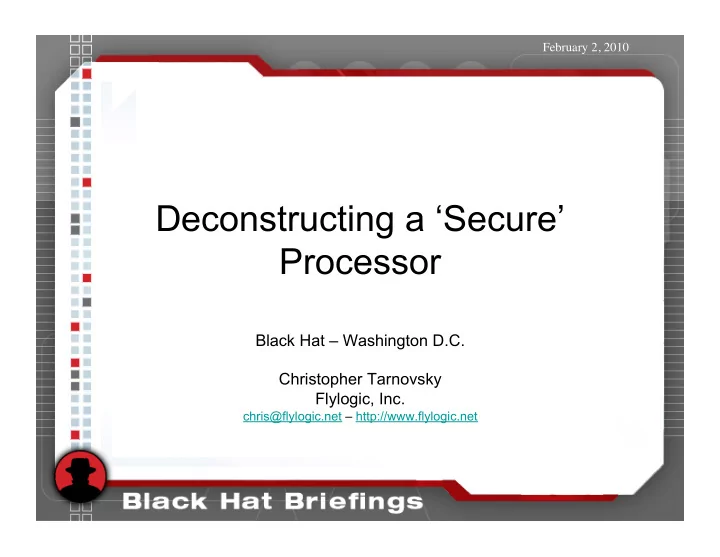

February 2, 2010 Deconstructing a ‘Secure’ Processor Black Hat – Washington D.C. Christopher Tarnovsky Flylogic, Inc. chris@flylogic.net – http://www.flylogic.net
Decapsulate Perform initial examination Identify device if possible Image layers Identify and understand challenges
• Remove silicon substrate from samples (decapsulate) • Device analysis via microscopy to determine: • Is there a mesh present? If so, time will be spent to understand how to overcome challenge. • Understand bond pad layout . • Nomenclature on part to help identify better from public documentation. • Databus routing from memories.
– Prepare: • Small physical geometry on current architectures (<220nm, 4+ metals) • Lower internal operating voltage • Fast internal operating frequency • Runs asynchronous to outside world clock frequency • Only synchronization will be outside world reset signal • Memories will be encrypted. Will need to locate the central core of the CPU. • Find access to a Focused Ion-Beam workstation.
– Execute: • Mesh present over device? – Determine how to bypass – Most likely requires FIB edits • Find the ‘clear’ databus • Place probing needles down on the bus and examine running code • Determine CPU architecture from running code if not already known. – Today's CPU architectures are commonly found to be 6805 (ST), 8051 (Infineon, NXP) or AVR (Atmel) instruction sets. • Examine running logs from databus – Most developers trust these devices to execute code as was written • Glitch device momentarily to abuse CPU to spill code/data bytes – Capture code/data bytes via IO line or needles on bus
Mission accomplished, next chip!
Recommend
More recommend